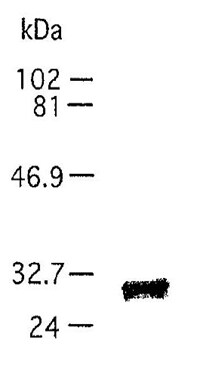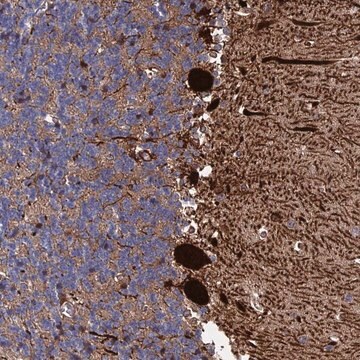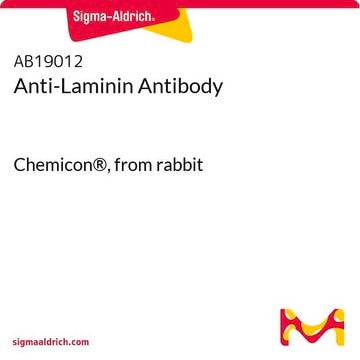IM32
Anti-TIMP-1 (Ab-1) Mouse mAb (7-6C1)
liquid, clone 7-6C1, Calbiochem®
About This Item
Recommended Products
biological source
mouse
Quality Level
antibody form
purified antibody
antibody product type
primary antibodies
clone
7-6C1, monoclonal
form
liquid
contains
≤0.1% sodium azide as preservative
species reactivity
rat, bovine, human
should not react with
mouse
manufacturer/tradename
Calbiochem®
storage condition
OK to freeze
avoid repeated freeze/thaw cycles
isotype
IgG1
shipped in
wet ice
storage temp.
−20°C
target post-translational modification
unmodified
Gene Information
human ... TIMP1(7076)
Related Categories
General description
Immunogen
Application

Immunoblotting (1 g/ml, see application references)
Immunocytochemistry (see application references)
Paraffin Sections (25 g/ml, see application references, see comments)
Packaging
Warning
Physical form
Reconstitution
Analysis Note
rTIMP-1 Protein (Cat. Nos. PF019 or PF020)
Other Notes
Cottam, D. W. and Rees, R. C., 1993. Intl. J. Oncol.2, 861.
Stetler-Stevenson, W. G., et al. 1993. FASEB J.7, 1434.
Woessner, J. F., 1991. FASEB J.5, 2145.
Liotta, L. A. and Stetler-Stevenson, W. G. 1990. in Seminars in Cancer Biology ed. M. M. Gottesman. Vol. 99-106.
Legal Information
Not finding the right product?
Try our Product Selector Tool.
Storage Class Code
12 - Non Combustible Liquids
WGK
WGK 2
Flash Point(F)
does not flash
Flash Point(C)
does not flash
Certificates of Analysis (COA)
Search for Certificates of Analysis (COA) by entering the products Lot/Batch Number. Lot and Batch Numbers can be found on a product’s label following the words ‘Lot’ or ‘Batch’.
Already Own This Product?
Find documentation for the products that you have recently purchased in the Document Library.
Our team of scientists has experience in all areas of research including Life Science, Material Science, Chemical Synthesis, Chromatography, Analytical and many others.
Contact Technical Service








